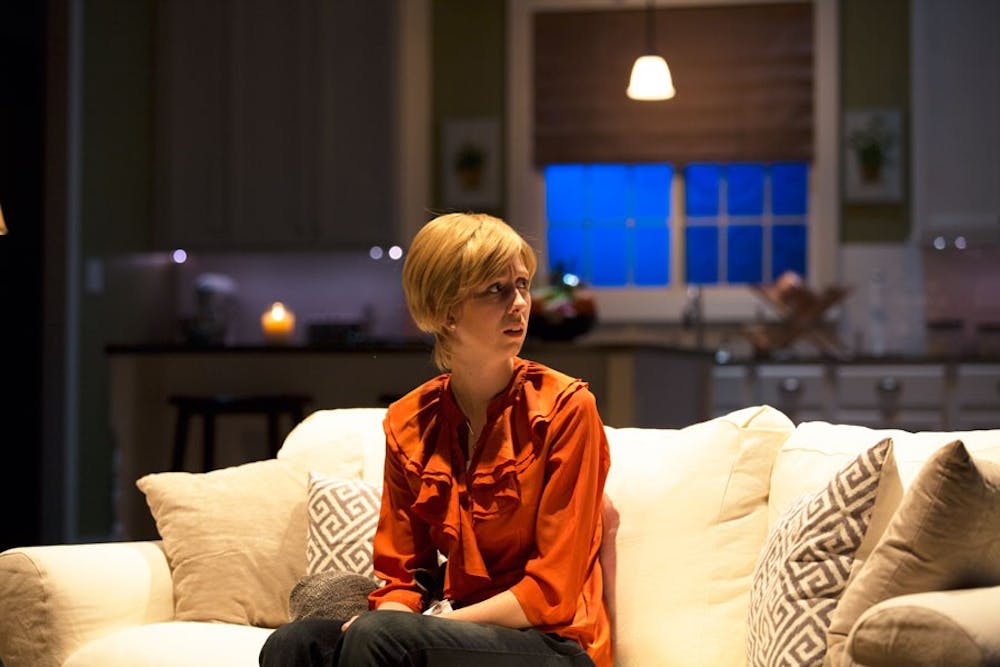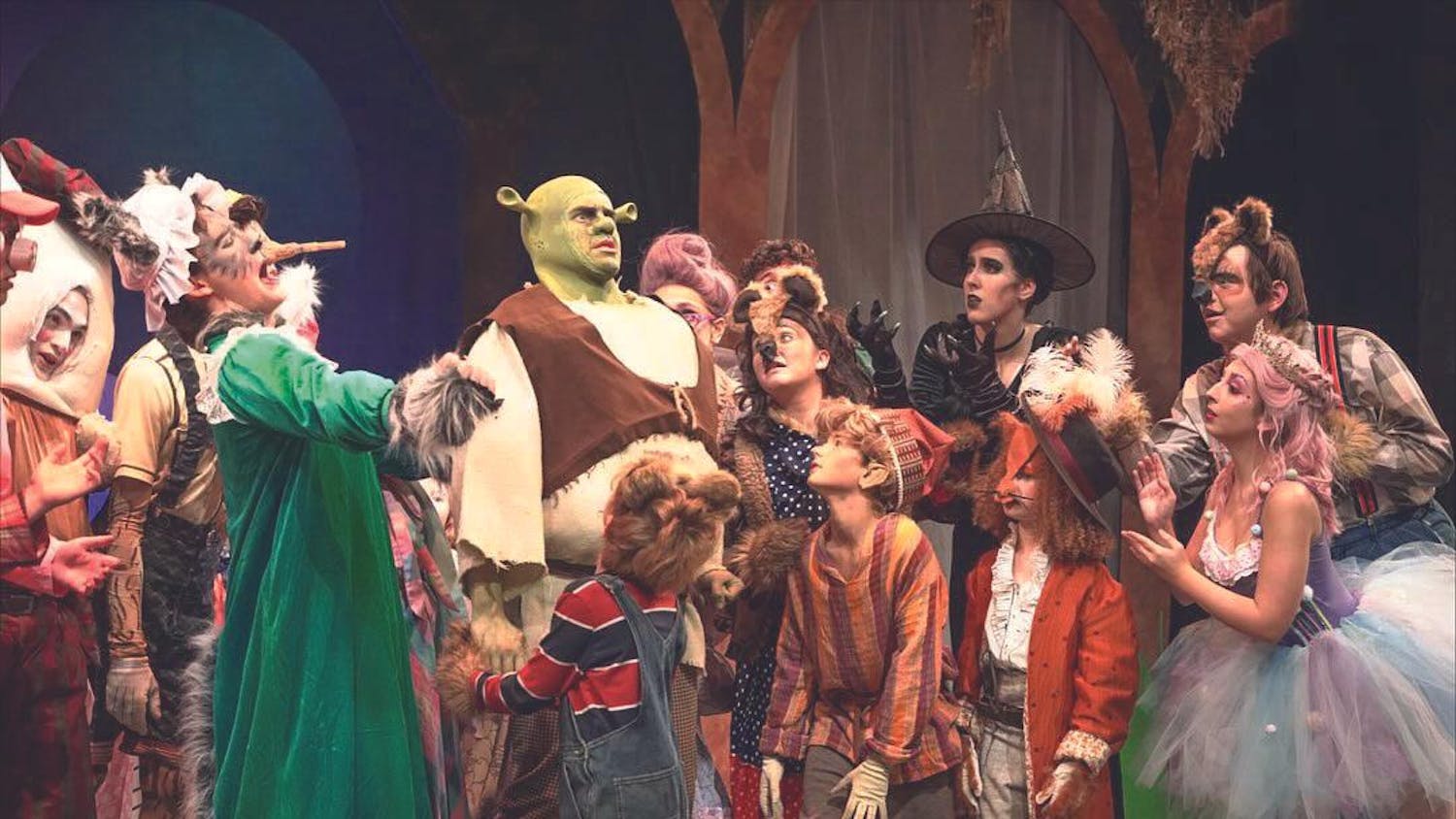By Austin Lindner | Echo
There is a house on the Mitchell Theatre stage.
Not the suggestion of a house or the frame of a house, but the real thing.
A messy drawing hangs on the door of the humming fridge in the kitchen-a little red handprint in paint, stamped atop a scribble of color.
The window above the sink lets light tiptoe onto the stage.
A staircase leads to the second-story bedroom where a stuffed monkey sits on a child's bed, waiting.
Most everything on the stage is fully functional-the faucet, the fridge-to honor Taylor Theatre's hyper-realistic interpretation of "Rabbit Hole." Directed by Tracy Manning, managing and artistic director of Taylor Theatre, the play strives to recreate everyday life's honest moments rather than the projected drama that often characterizes theatre productions.
Written by American playwright and screenwriter David Lindsay-Abaire, "Rabbit Hole" won the 2007 Pulitzer Prize for Drama.
The play is a portrait of a family framed by tragedy, learning to recover from the loss of a loved one. Every awkward, intense, funny and painful moment is in plain view for the audience as each character experiments with grief, searching for a coping mechanism, a trick, a method-anything to reach the elusive feeling of "fine."
While the show isn't without its fair share of humor, loss is present in every moment. There's an unseen rift in each scene that the characters must step around and jump over while pretending to maintain their everyday lives. An accidental drop of a name or painful phrase instantly causes the whole room to flinch, then leap forward as if nothing happened.
The pain presented onstage isn't a dramatic wound. It's a steady throbbing, a thin cut refusing to close.
The small, capable cast of five clearly feels the pain. Senior theatre major Morgan Turner leads the group as Becca, a mother with a lost sense of identity. Always keeping her hands busy, appearing perfectly all right on the surface, Turner's Becca is desperate for comfort, and ashamed to be jealous of those who have found it. Her quiet smile belies the loudness of her eyes, showing she is constantly holding herself back from the edge. She is unable to move around the hole in her heart, but unwilling to fill it up.
At her side is senior Carter Perry as her husband Howie. Strong and fragile, steady and broken, Perry excels in his role, creating an intimate tension with Turner that expresses months of memories and hurt without diving into exposition.
Most of the show's lighter moments come from seniors Leah Murphy and Tamara Peachy, playing Becca's impetuous sister and opinionated mother, respectively. Both Murphy and Peachy lose themselves in their roles, delightfully delivering moments of humor and wisdom without playing to the audience, shifting their tone to somber when necessary.
Junior Andrew Davis plays 17-year-old Jason, a youth marked by the same tragedy as the others. Fidgeting and slouching, Davis brings a lifelike physicality and sense of conflict to his performance.
While the undercurrent is often serious, the cast refuses to take the ample opportunities to soak up the drama and steal the scene.
Instead, the performers trade spotlight for intimacy, matching the show's tone of almost film-like realism. This presents a significant challenge, as the actors must project their voices to the back of the theatre while focusing on sincere moments with each other. They must make every rehearsed motion appear as unnoticeable as possible. As difficult as it may be, the cast succeeds, creating truthful moments caught under the Mitchell Theatre lights.
While the theme of loss is ever present and the tension never fully recedes, Taylor's "Rabbit Hole" presents a conversation and exploration of grief, rather than a melodrama. Sometimes funny, sometimes difficult to watch, the play captivates through the daily choices of its characters.
Searching for hope, refusing to fall on the crutch of blame, plagued by the "what if's" and "should have's," each character makes his or her own journey around the invisible rift at different speeds. Through group therapy or giving in, each family member attempts to answer the question that looms above every scene, every second.
"What are we gonna do?"
Even as the stage lights dim and the house lights go up, the question lingers.
Perhaps the grief never goes away. Perhaps we will never push the painful bricks off our shoulders. But Taylor's "Rabbit Hole" shows that maybe defeating the burden of grief is not what is important, but facing it. Day by day, second by second, the weight slowly becomes lighter. It may never go away, but we can bear it, so we will.




